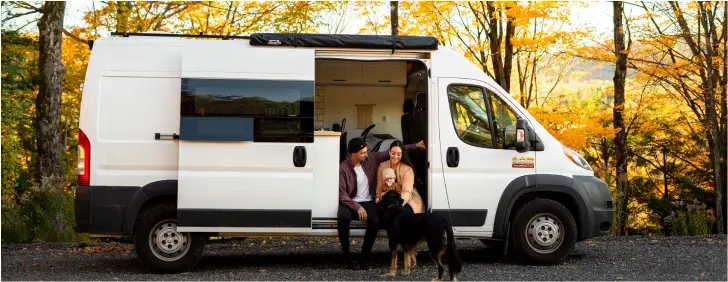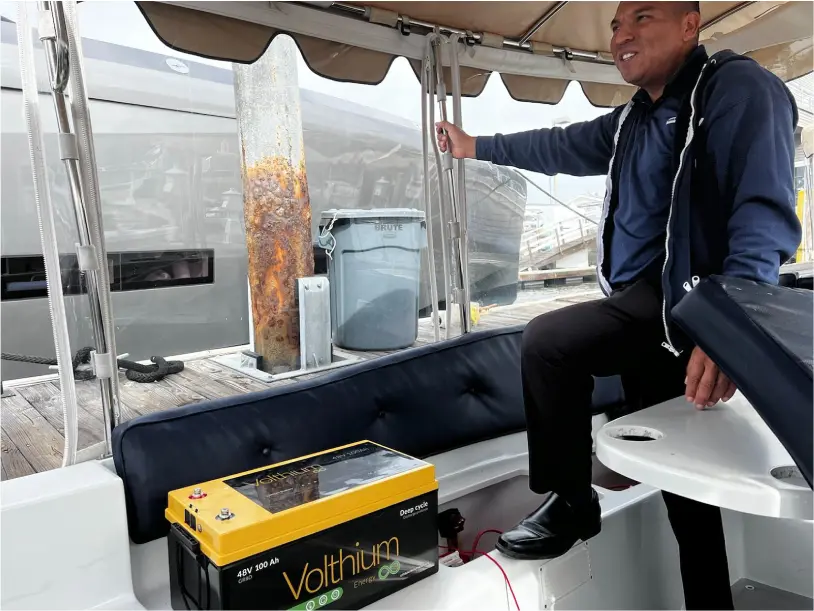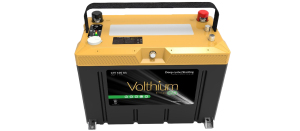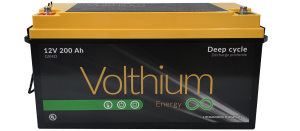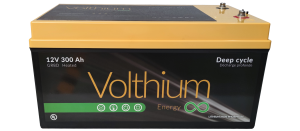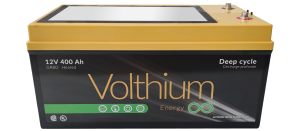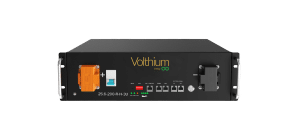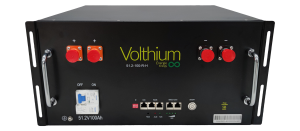CHOOSING VOLTHIUM IS CHOOSING QUALITY WITHOUT COMPROMISE
Through our values of innovation, excellence, cooperation and sustainability, we strive to provide the energy needed to carry out your projects through our lithium energy storage solutions. Constantly seeking to push the boundaries of technology to offer ingenious and high-quality products.
THE LITHIUM BATTERY BRAND
THE MOST POPULAR IN QUEBEC
Volthium is the best-selling lithium battery brand in Quebec. Many thousands of customers satisfied with the excellence of our products and customer service.
We manufacture lithium batteries suitable for different fields and applications.
- Our most portable sizes, under 100Ah, are perfect companions for hunting and fishing
- Our 12V batteries, from 100Ah to 400Ah and our 24V from 100Ah to 200Ah, are suitable for nautical and recreational vehicle fields;
- Our 48V ABS models are designed to be installed in electric golf carts or for electrical installations on large boats such as sailboats, boats and pontoons;
- 24V and 48V wall-mounts and rack-mounts designed to be installed in residential, commercial (medical clinics, pharmacies, UPS back-up systems, etc.) and industrial (mining, forestry, etc.) installations.
Find out which battery is best suited to your needs in the battery section of our online shop.
From $1,089.98
It is the only lithium battery with alternator protection system in North America!
It is equipped with a high-performance BMS, on/off button, self-heating system, cooling system, integrated Bluetooth functionality (2 communication ports), all in a group 27 format, ultra compact and light and IP67 certified.
From $1,799.98
Volthium’s 12V 200 Ah LiFePO4 ABS Battery in 4D format is manufactured specifically for customers in cottages, motor vehicles, trucking industry and industrial applications.
From $2,374.98 – $2,599.98
This battery is perfectly suited for your 3000W inverter. Thanks to its high-performance BMS, you will be able to manage a discharge current of 250A continuously, while 3000W inverters consume an average of 240A on a good lithium battery.
From $3,399.98 – $3,649.98
Our 12 V400 Ah LiFePO4 battery in ABS in 8D format is manufactured specifically for boat, sailboat, motor vehicle and industrial customers. Equipped with a cooling system to improve the operating temperature range.
From
Our new LFP 25.6V 200Ah Rackmount 3U energy storage battery is perfect for off-grid installations across Canada!
This is a high-end LiFePO4 battery, custom-built to meet the highest industry standards.
From
Volthium’s 51.2 V 100 Ah – Rackmount Solar Storage LFP batteries are high-end products custom-made for a mainly commercial and industrial clientele. These batteries are designed to be rack-mounted in a server cabinet or telecommunications cabinet type, the width is standard 19′.
Lithium batteries are one of the most common energy storage technologies today, widely used in a variety of applications, from electric and recreational cars (RVs), water vehicles, solar storage banks, medical and industrial applications. The basic principle of their operation is the mobility of lithium ions between the two electrodes: the anode (negative electrode) and the cathode (positive electrode), via an electrolyte.
- Composition: Lithium batteries are typically made up of three main components: the anode, cathode, and electrolyte. The anode is usually composed of carbon, most often in the form of graphite. The cathode of LifePO4 batteries such as the ones we manufacture is made of lithium iron phosphate, iron phosphate promotes a strong molecular bond, which withstands extreme load conditions, extends service life, and maintains chemical integrity over many cycles. For other lithium batteries, the cathode is usually composed of a lithium metal compound, such as lithium cobalt, lithiated manganese, lithium nickel, or a mixture of these elements. The electrolyte is a chemical substance that allows lithium ions to pass between the anode and the cathode. At Volthium, we believe that LifePO4 batteries are the best alternative for different reasons.
- During charging: When the battery is charged, i.e. when the current is applied, the lithium ions move from the cathode to the anode via the electrolyte. During this process, lithium ions are “inserted” into the anode structure, a process called intercalation.
- During discharge: When the battery is used to power a device, i.e., when it is discharged, lithium ions move from the anode to the cathode, a process that releases energy. The mobility of lithium ions from the anode to the cathode is what generates the energy needed to power the device.
- Capacity and durability: The capacity of a lithium battery is determined by the amount of lithium it can store, which in turn determines how much energy it can provide. However, it is normal for the capacity of a battery to decrease over time, a phenomenon known as battery degradation. This is due to several factors, including temperature, overcharging and discharging, and general battery usage. However, thanks to the quality of our batteries and in particular our grade A+ cells, our batteries are guaranteed for 10 years and offer a lifespan of about 15 years.
LiFePO4 batteries, known for their lithium iron phosphate composition, are distinguished by their durability and superior energy capacity, especially in demanding applications such as recreational vehicles (RVs), trailers, and cottages. In Canada, where the search for reliable and sustainable energy solutions is constant, lithium LiFePO4 batteries are increasingly preferred over traditional lead-acid batteries, thanks to their long lifespan that can reach up to 3000 cycles at 100% discharge without significantly damaging the remaining capacity of the battery.
Volthium offers a range of 12V and 200Ah LiFePO4 batteries, equipped with grade A cells guaranteeing optimal efficiency. These batteries offer a shorter charging time and greater energy capacity, making the installation of a solar panel for energy storage even more cost-effective. Their high charge rate and stable voltage allow any electrical equipment to be efficiently powered, without the risk of overheating, thanks to the intrinsically safe lithium iron phosphate technology.
There are several types of lithium batteries, which are usually differentiated by the material used for the cathode (the positive electrode). The most common types are lithium cobalt (LiCoO2), lithium manganese (LiMn2O4), lithium nickel manganese cobalt (NMC), lithium nickel cobalt aluminum (NCA), and lithium iron phosphate (LiFePO4 or LFP) batteries. Volthium batteries are Iron Phosphate batteries known as LiFePO4 and LFP which are a kind of lithium-ion battery. They differ from other types of lithium batteries in their use of iron-phosphate for the cathode, rather than cobalt or nickel. They are said to have the following qualities:
- Safety and stability: LFP batteries are known for their safety and superior thermal stability. Compared to other types of lithium batteries, they are less likely to overheat or catch fire if malfunctioned or misused. This increased safety is due to the intrinsic stability of iron phosphate.
- Durability and life cycle: They also have a long service life and can maintain a high load capacity even after many charge and discharge cycles. They have a low self-discharge rate, which means they can hold their charge for long periods of time without use. Our products offer more than 6000 cycles and have a service life of about 15 years.
- Environmental performance: In comparison, LFP batteries have a potentially lower environmental impact. Iron is more abundant and less toxic than cobalt and nickel, and iron mining has a lower environmental impact. In addition, LFP batteries are easier to recycle than other types of lithium batteries.
Reducing our dependence on fossil fuels, improving air quality, managing e-waste more responsibly ; Lithium batteries have had a significant positive impact on the environment, playing a critical role in the transition to a cleaner and more sustainable society. Their increasing adoption in various areas, such as electric vehicles and renewable energy storage, has helped to significantly reduce greenhouse gas emissions from transportation and power generation.
Lithium battery recycling has also become more efficient, allowing valuable materials such as lithium, cobalt, and nickel to be recovered and reused in new batteries or other applications.
DO YOU NEED
HELP IN DECIDING?
The best battery for your unique needs.
